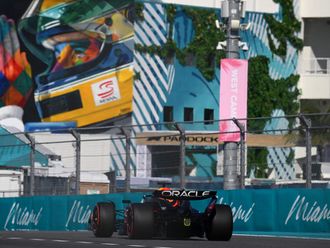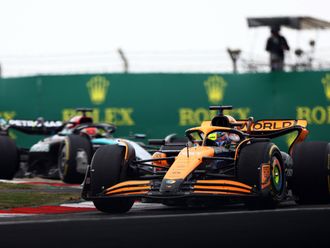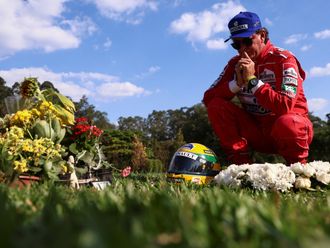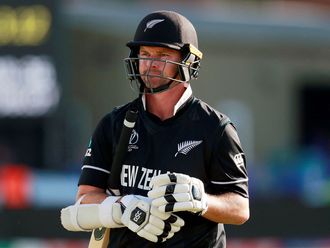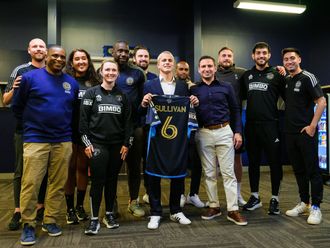Abu Dhabi: As the 21st and last race of the longest season in Formula One history approaches at this weekend’s Formula One Etihad Airways Abu Dhabi Grand Prix, numbers are all important.
All eyes will be on two men: Nico Rosberg and Lewis Hamilton. On Sunday evening one of them will be world champion, and the odds are in the German’s favour: he arrives in Abu Dhabi with a 12-point lead over his Mercedes teammate and he need only to finish third to clinch his first title.
Since Rosberg has finished on the podium 15 times in the previous 20 races, that shouldn’t be beyond him. Each of the two title contenders has won nine races this season, but if pole position is crucial to what happens on Sunday then Lewis has the edge — he has been on pole 11 times in 2016 to Nico’s eight.
On the other hand, the driver on pole has only won the Abu Dhabi race twice: Sebastian Vettel in 2010 and Rosberg last year.
He may be second in the standings, but Hamilton has figured prominently in the statistics this year. His victory in Brazil less than two weeks ago was his 52nd in F1 and that makes him the second-most successful driver in history behind only Michael Schumacher with 91. Hamilton has now been on pole 60 times, which puts him behind only Schumacher (68) and the great Ayrton Senna (65).
The two Silver Arrows drivers have, of course, made it a record-breaking year for their team. Mercedes have won 18 of the 20 races, claimed 19 poles and finished 1-2 on no fewer than seven occasions, including the last three races. They already have 722 points, the highest total since F1 switched to the 25-points-for-a-win system in 2010; the previous best was 703 by Mercedes themselves in 2015.
But it’s not all about Mercedes: Force India, for one, could break a record of their own on Sunday. If they stay ahead of Williams — and they lead by 27 points — then they will be fourth, their highest-ever finish in the constructors’ standings. They already have 163 points, and that’s eight more than their previous highest tally.
Not only that, but their driver Sergio Perez needs only three points to reach 100 in his own right — and he would be the first Force India driver to pass that landmark.
One other driver has made history of his own in 2016, and that’s Red Bull Renault’s Max Verstappen. When he took the chequered flag in Spain in mid-May, Max became the youngest winner in F1 history: he was just 18 years and 227 days old, eclipsing the previous record held by Sebastian Vettel at 21 years and 73 days.
At the other end of the Grand Prix spectrum, in Abu Dhabi we bid farewell to two of the sport’s most enduringly popular drivers. Felipe Massa of Brazil and Williams will race for the 250th and last time; Jenson Button of England and McLaren will start for the 305th time and, while the plan is for him to return in 2018 after taking up an ambassadorial role, who can tell?
Coincidentally, each won for the first time in 2006, Massa in Turkey and Button in Hungary; and each won for the last time in Brazil, Massa back in 2008 when he so nearly became world champion, Button in 2014.



